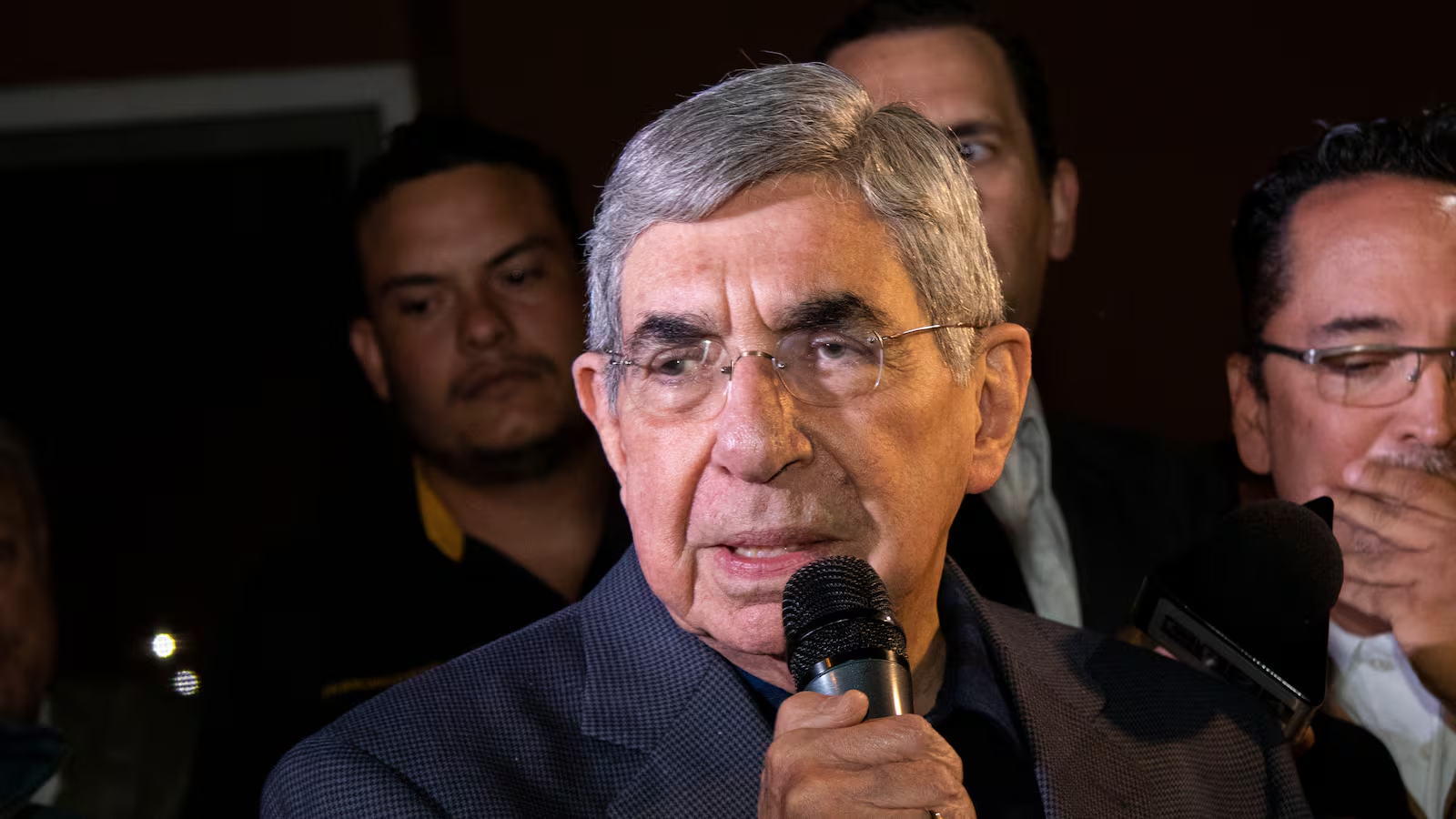Former Costa Rican President Óscar Arias lost his U.S. visa on 1st April 2025, weeks after he compared President Donald Trump to a “Roman emperor” on social media.
The 84-year-old Nobel Peace Prize winner’s B1/B2 diplomatic visa was cancelled via email under Section 221(i) of the Immigration and Nationality Act.
Table of Contents
The Trump Criticism
Arias’s February 2025 social media post accused Trump of behaving “like a Roman emperor, telling the rest of the world what to do.” Secretary of State Marco Rubio was preparing his Costa Rica visit when the post appeared.
The former president wrote that Trump lacked Reagan’s diplomatic approach: “Despite the obvious existence of our discrepancies, respect and cordiality always prevailed.”
Arias called Trump and Vice President JD Vance’s treatment of Ukrainian President Zelenskyy “arrogant and humiliating,” with “intimidating words” lacking “diplomacy, measure, respect and calm.”
He accused Costa Rica of acting like a “Banana Republic” that “received orders from Washington.”
The Revocation Notice
The cancellation came through what sources describe as a “terse” and “brief” email. It stated: “subsequent to visa issuance, information has come to light that you may be ineligible for your visa.”
Section 221(i) permits revocations without explanation or appeal.
China Connection Revealed
Arias held a press conference at his home after the revocation. “If someone wants to punish me in the hopes of silencing me, that isn’t going to work,” he said. He claimed “no idea” and “no knowledge” of specific reasons.
But U.S. Embassy workers in San José gave him an answer. They “cited my relationship with China” as the reason, Arias told NPR.
That relationship began in 2007 when Arias switched Costa Rica’s recognition from Taiwan to China. The move enabled a free trade agreement.
“I have always believed that the United States is ‘a nation in search of an enemy.’ Today, that enemy is China,” Arias has said, claiming this narrative serves to “feed the arms industry.”
Ten Costa Ricans Targeted
Progressive Liberal Party deputies Johana Obando Bonilla and Cynthia Córdoba Serrano opposed Huawei’s exclusion from 5G networks. Both lost their visas. Obando reported receiving threats.
Social Christian Unity Party deputy Vanessa Castro discovered her visa cancellation through media reports. National Liberation Party deputy Francisco Nicolás Alvarado, a Chaves critic who allegedly favored Huawei, was also affected.
Former ICE telecommunications managers Jaime Palermo Quesada and Carlos Luis Mecutchen lost their visas after being criticised by Chaves for alleged Huawei favoritism. ICE auditor Ana Sofía Machuca and former network head Douglas Quesada faced the same fate.
Yang Peng, Huawei’s Costa Rica representative, had his visa cancelled.
All ten had opposed excluding Chinese technology from Costa Rica’s 5G development.
New State Department Policy
Secretary Rubio’s 25th March 2025 cable revealed the strategy. Consular officers could now deny visas for social media posts showing “hostile attitude toward U.S. citizens or U.S. culture (including government, institutions, or founding principles).”
Rubio claimed he signed over 300 revocation letters for “objectionable foreign policy views.”
During his February Costa Rica visit, Rubio had offered to help President Chaves “punish” officials collaborating with “foreign actors who pose a threat to the country’s cybersecurity.”
Official Silence
President Chaves hasn’t commented on the revocations. His administration has backed U.S. positions on excluding Chinese technology from 5G networks.
The State Department maintains its standard position of not discussing individual visa cases, citing privacy laws.
Economists for Peace and Security condemned the action on 22nd April 2025: “We deplore this action and urge U.S. authorities to uphold the values of open dialogue, democratic engagement, and respect for global leaders.”
The National Liberation Party called the actions “unacceptable” coercion.
Arias’s American History
The 1987 Nobel Peace Prize winner had defied Washington before. His Central American Peace Plan opposed Reagan’s Contra policy. He refused to let U.S.-backed rebels operate from Costa Rica during his 1986-1990 presidency.
“The United States is a paradigm of democracy, or it has been. Today it has characteristics of autocracy,” Arias said after losing his visa.
He once described his Washington relationship: “small David” facing a “powerful Goliath.”
Arias served again as president from 2006 to 2010.
Key Facts
The reason: No official reason given. Embassy staff told Arias it was his “relationship with China.” The action followed his Trump criticism.
Appeal options: None. Section 221(i) decisions are final.
Others affected: Nine Costa Ricans including four lawmakers, four telecom officials, and Huawei’s top executive.
The 2019 allegations: Six women accused Arias of sexual assault. Two filed complaints, both withdrew in 2020, cases dropped. The vague visa justification could theoretically include this, but the pattern points to political reasons.
Historical precedent: First known Nobel Peace Prize laureate to lose U.S. visa for political speech.
Costa Rica’s position: The country abolished its military in 1948 and traditionally maintains neutrality. These revocations pressure alignment with U.S. technology policy.
The visa revocations mark a shift from traditional diplomacy to targeted personal sanctions against those opposing U.S. strategic interests in Latin America.
Sources:
- U.S. Revokes Visa of Ex-President Óscar Arias – The Tico Times
- Former Costa Rican President Says Visa May Have Been Revoked Over Criticism of Trump – OPB
- Statement on Oscar Arias Visa Revocation – Economists for Peace and Security
- Ex-Costa Rica President and Nobel Peace Prize Winner Oscar Arias Says US Revoked His Visa – Associated Press

